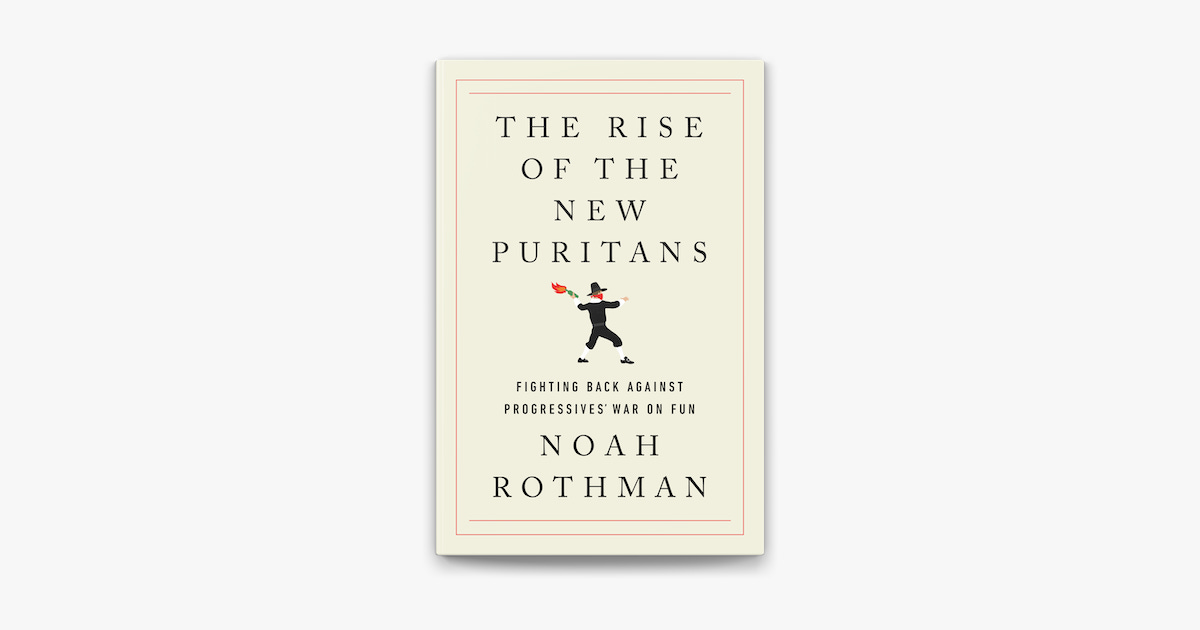E-Pluribus | July 19, 2022
Anthropologists don't assume gender, the Disinformation Governance Board is discontinued, and more on the New Puritans.
A round-up of the latest and best writing and musings on the rise of illiberalism in the public discourse:
Jonathan Turley: Anthropologists Call for an End to Classifying Human Remains by Gender and Ancestry
It might read like a Babylon Bee headline, but an actual debate is raging in academic anthropology about whether it is appropriate for researchers to identify the gender (because they cannot assume how a person identified) or ancestry (because it may fuel white supremacy) of ancient human remains. At his blog, George Washington University Law Professor Jonathan Turley discusses the controversy.
Graduate students like Emma Palladino have objected that “the archaeologists who find your bones one day will assign you the same gender as you had at birth, so regardless of whether you transition, you can’t escape your assigned sex.”
Professors Elizabeth DiGangi of Binghamton University and Jonathan Bethard of the University of South Florida have also challenged the use of racial classifications in a study, objecting that “[a]ncestry estimation contributes to white supremacy.” The authors write that “we use critical race theory to interrogate the approaches utilized to estimate ancestry to include a critique of the continued use of morphoscopic traits, and we assert that the practice of ancestry estimation contributes to white supremacy.”
The professors refer to the practice as “dangerous” and wrote in a letter to the editor that such practices must be changed in light of recent racial justice concerns.
“Between the devastating COVID-19 pandemic and the homicides of numerous Black Americans at the hands of law enforcement officials, we have all been reminded about the fragility of life, and the failures of our society to live up to the ideals enshrined in the foundational documents which established the United States of America over two centuries ago. Tackling these failures seems overwhelming at times; however, changes can be enacted with candid and reflexive discussions about the status quo. In writing this letter, we direct our comments to the forensic anthropology community in the United States in hopes of sparking a discussion about the long-standing practice of ancestry estimation and changes that are frankly long overdue.”
The end result of such proposals would be to curtail or bar the classification of human remains by gender or ancestral heritage by anthropologists.
Read the full post.
Diana Glebova: DHS Decides There Is ‘No Need’ for Disinformation Governance Board
The Biden administration and the Department of Homeland Security have been trying to find a way to fight “disinformation,” a vague and concerning effort that raises a number of free speech red flags. Despite its best efforts, writes Diana Glebova at National Review, it appears that DHS just couldn’t come up with a compelling reason to justify the Disinformation Governance Board.
The Disinformation Best Practices and Safeguard Committee, which provided preliminary findings to the advisory council, said on Monday that the DHS would be doing away with the Disinformation Governance Board altogether.
“We are not ready, as of yet, to provide recommendations on the Department’s most effective approach to disinformation threats, including commitments to increase transparency and protect civil rights, civil liberties, and privacy,” the subcommittee said in its report.
“However, at this point, we have concluded that there is no need for a Disinformation Governance Board,” the statement continued. The final report will be issued in early August.
Read it all.
Free Expression Podcast with Gerard Baker: Noah Rothman and "The New Puritanism"
As we’ve noted recently, Noah Rothman has a new book The Rise of the New Puritans: Fighting Back Against Progressives' War on Fun about how progressives have embraced an ideology that seeks to eliminate pleasure from our lives. On his Wall Street Journal podcast Free Expression, Gerard Baker talks with Rothman about the alienating and exhausting aspects of the New Puritanism.
Gerard Baker: Let me play devil's advocate for a little bit here and say maybe there's something to be welcomed about this sort of puritanism, this sort of censoriousness, this constant lecturing we get, because at least it's a corrective, if you like, to the kind of libertinism that too many people worry about comes with the liberal societies that we've grown up with. I'm a lot older than you, but I can remember people have been saying for every single generation, "Oh my God, these young people today, they don't believe in anything. It's all about self-interest, it's all pursuing their own self-interest." Having this admittedly sort of manic, rather obsessive and actually very irritating sort of moral outlook that they have, isn't that actually somewhat better than the alternative of just endless hedonistic self-satisfaction?
Noah Rothman: Yeah. I mean, part of my mission here is to advertise to an austere young generation, that they are a little less permissive than their parents and grandparents. I think they would resent that and reject that rather wholeheartedly. But it nevertheless is the case that they are creating for themselves a conservative social order that their parents rejected. And if you are a conservative, as I am, you do see a lot of value here, albeit the practice is a little extreme to the point that I think it destroys the project. But underlying it are some valuable moral codes. And I returned to this throughout the manuscript and I attempt to be as generous as possible.
The problem with the practice of the new puritanism is manifold. First, it steals from you a sense of agency. It replaces that with a sense of purpose and mission, but your purpose is so grand and the mission is so far off and out of reach that it inculcates a sense of fatalism in its adherence. That's in part because they have conceptualized politics in a way that politics really isn't. We're talking about things with political themes. Your burrito is not politics. It may be a little political, but it's not politics, it is not amenable to legislative reform. It is nothing to do with electoral outcomes. And so when you build for yourself this worldview with its urgent moral priorities that the political establishment and the system in this country cannot respond to, certainly cannot address in the way you think it should be addressed, one of two things happens to you. You either become despondent, depressed, and withdraw from the political scene, which I think many have, in part because it's so exhausting and the practitioners of politics are absolutely exhausting. Or you radicalize, you resolve to attack the foundations of these wholly immoral institutions that will not or cannot respond to the absolute urgent moral imperative you've established for yourself. The answer to reestablishing, remoralizing, in Gertrude Himmelfarb's formulation, society is not to extirpate joy from it, is not to make of yourself an exhausting, miserable caricature of a social reformer that alienates you from the people around you.
Read the transcript or listen here.
Around Twitter
In a thread, Jonathan Kay discusses his recent podcast with Swedish Marxist Malcom Kyeyune about how the rise of corporate wokeness can be explained by the increase in the managerial class.






Via Robby Soave, British MP Kemi Badenoch discusses CRT in England:



Finally, Peter Boghossian “polls” student opinions at Purdue University about the statement: “Equality of outcome is more important than equality of opportunity.”









